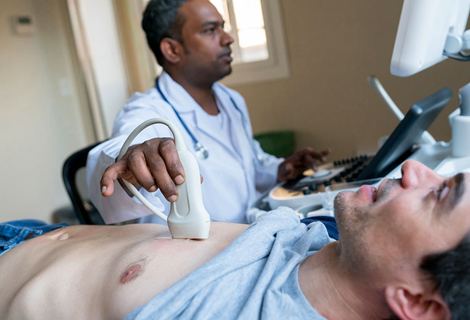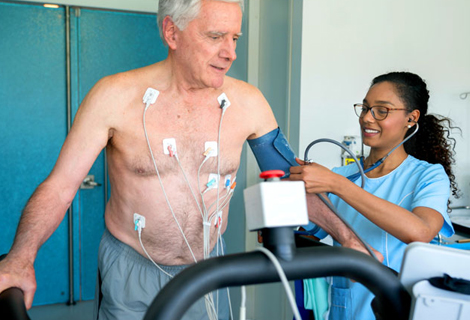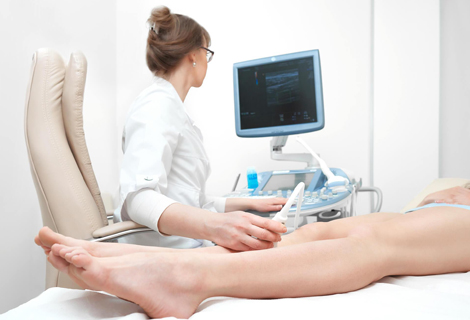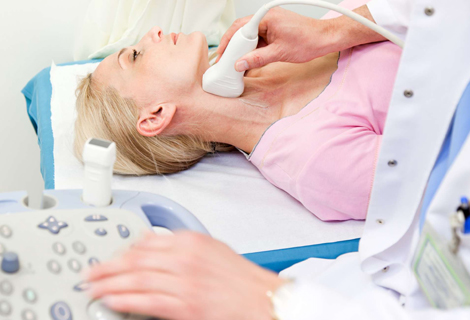Echocardiogram
What is Echocardiogram?
An echocardiogram is a noninvasive procedure that utilizes high-frequency sound waves to create a graphic image of your heart. With this procedure, your physicians can monitor how well your heart is functioning and locate any problems.
With the echocardiogram’s results, physicians will be able to tell:
-
Any changes in the size of your heart
-
Pumping strength and any problems with the relaxing function
-
Any blot clots in heart chambers
-
Heart pressure
-
Problems with the functioning of heart valves
-
Health of the heart muscles
What is the need for an Echocardiogram?
The doctor might suggest an echocardiogram if any irregularities are found while listening to the patient's heartbeat or other tests. The test is used to:
-
Check for any trouble with the valves
-
Inspect the heart’s functioning
-
Scan for any possible heart diseases
-
Monitor the improvement of heart valve disease over time
-
Examine the effectiveness of the medical or surgical treatments
Choosing the right type of echocardiogram depends on the information needed. Your physician will suggest a suitable type of echocardiogram, such as:
-
Transthoracic echocardiogram
-
Transesophageal echocardiogram
-
Stress echocardiogram
-
Fetal echocardiography
-
Three-dimensional echocardiography
What are the risks involved in Echocardiogram?
The echocardiogram is a safe test. There are no risks with transthoracic or fetal echocardiograms. They are safe for people of all ages.
The transesophageal echocardiogram can be uncomfortable for some people. They might feel slight discomfort in their throat and be drowsy due to the sedative used for the test. In very rare cases, you may experience a risk of the tube scraping your throat.
When you undergo a stress echocardiogram, the risk you may encounter is from the medication or exercise used to raise your heart rate. It can cause irregular heartbeat, however, severe complications are rare
Preparation for an Echocardiogram
There are no specific preparations for a standard echocardiogram. You can eat and drink normally, unless you have a transesophageal echocardiogram, in which case the doctor may ask you to abstain from eating for several hours prior to the test.
You will also be unable to drive after a transesophageal echocardiogram due to the sedatives. If you are to undergo a stress echocardiogram, wear clothes and shoes that are comfortable to exercise in.



